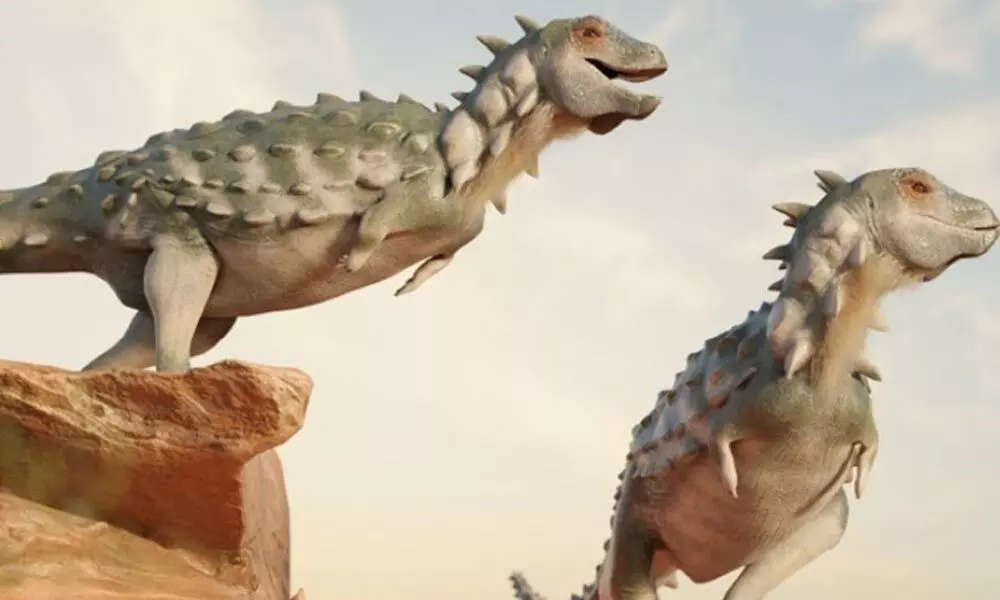A New Species Of Dinosaurs Is Discovered In South America By Researchers

- An entire lineage of armoured dinosaurs that science had never before encountered may be represented by the fossils of a small, prickly dinosaur that was recently unearthed in South America.
- Palaeontologists discovered a vast lineage of armoured dinosaurs that thrived in the Southern Hemisphere but had never before been discovered.
An entire lineage of armoured dinosaurs that science had never before encountered may be represented by the fossils of a small, prickly dinosaur that was recently unearthed in South America.
Jakapil kaniukura, a recently discovered species, resembles a primitive relative of dinosaurs with armour like Ankylosaurus or Stegosaurus, although it originated from the Cretaceous, the final period of the dinosaurs, and lived between 97 million and 94 million years ago.
According to a recent study, palaeontologists discovered a vast lineage of armoured dinosaurs that thrived in the Southern Hemisphere but had never before been discovered. J. kaniukura probably grew to be about 5 feet (1.5 metres) long, weighed about the same as a domestic cat, and had a row of protective spines running from its neck to its tail. Its plant-eating teeth resembled those of Stegosaurus and were fashioned like leaves.
In the province of Rio Negro in northern Patagonia, palaeontologists from the Felix de Azara Natural History Foundation in Argentina discovered a portion of a subadult J. kaniukura's skeleton. The dinosaur probably had a small beak that could deliver a powerful bite and walked upright. The experts said Thursday that it presumably would have been able to devour tough, woody vegetation.
The new dinosaur belongs to a class of dinosaurs called Thyreophora together with Stegosaurus, Ankylosaurus, and other armor-backed dinosaurs. The majority of thyreophorans are known from the Northern Hemisphere, and the earliest fossils from this group are generally found in rocks from North America and Europe that date from the Jurassic period, between about 201 million years ago and 163 million years ago.
The fact that this old lineage of thyreophorans continued to exist in South America into the Late Cretaceous was also unexpected, they continued. These more primitive thyreophoran species appear to have vanished from the Northern Hemisphere by the Middle Jurassic.
Meanwhile, in the Puelchean or northern Tehuelchean Indigenous language of Argentina, the word "Jakapil" means "shield bearer." In the indigenous Mapudungun language, "Kanikura" is derived from the terms "crest" and "stone."
Next Story
















